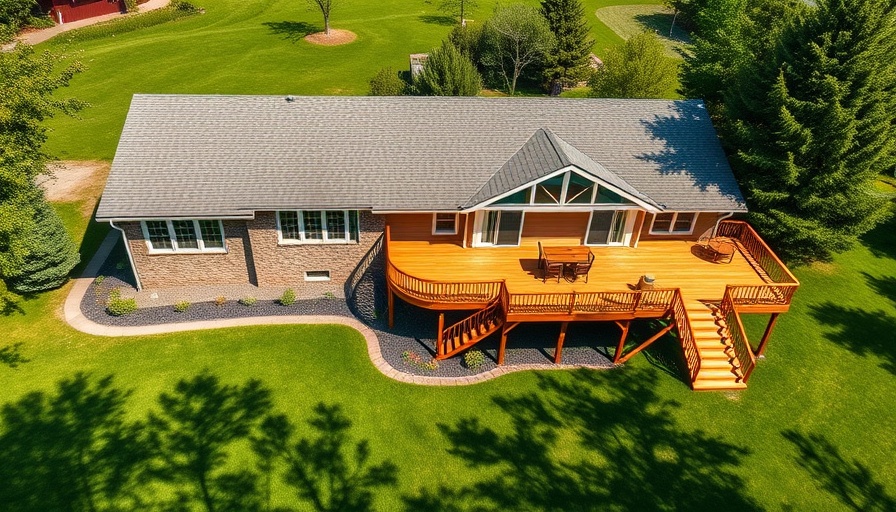
Navigating Basement Bedroom Laws in Brooklyn: A Comprehensive Guide
For homeowners in Brooklyn looking to maximize their living space, converting a basement into a bedroom can be an attractive option. However, it's crucial to understand the legal and zoning considerations involved, as the city imposes specific regulations to ensure safety and compliance. Whether you are contemplating this renovation or have already begun plans, knowing the ins and outs of Brooklyn's basement bedroom laws is essential.
Understanding Zoning Regulations
Brooklyn's unique architectural landscape is complemented by zoning regulations designed to maintain the integrity of residential neighborhoods. The Department of Buildings (DOB) has clear guidelines regarding what constitutes livable space in basements. These laws dictate not only the minimum standards for safety—including ceiling height and emergency exits—but also the overall structure and use of residential buildings.
For instance, a basement must have a minimum ceiling height of 7 feet for it to be considered habitable, although exceptions permit lower heights for certain portions. Additionally, every basement bedroom must have at least one window that leads directly to the outdoors, essentially acting as a secondary exit in case of emergencies.
The Importance of Permits
Before initiating any construction, obtaining the necessary permits is non-negotiable. Engaging with the DOB and submitting a detailed plan can prevent future penalties and ensure the final product meets all cooking, sleeping, and safety requirements. This process includes inspections, which can verify compliance with local housing codes—providing peace of mind and safety for occupants.
Impact of Safety Codes
Safety is the cornerstone of converting a basement into a legal bedroom. Homeowners must adhere to several safety codes, including fire safety measures. For example, installing a smoke detector and a carbon monoxide detector is mandatory. Furthermore, escape routes should be clearly defined and easily accessible for anyone occupying the basement space. Understanding the intersection of safety codes with zoning laws reinforces the necessity for diligent planning.
Potential Pitfalls and Solutions
Many homeowners inadvertently make modifications that violate zoning laws, leading to significant complications. Common pitfalls include improper ventilation, inadequate escape routes, and failure to install necessary utilities properly. To avoid these issues, homeowners should consult with an experienced contractor familiar with local regulations or even take advantage of resources available through the DOB's office.
For example, hiring a skilled architect to help design the basement space can streamline the process of meeting compliance standards. Such professionals can provide insight into both innovative design concepts and the complex world of permits and legalities.
Planning for Future Regulations
As New York City continues to evolve, so too does its regulatory landscape. Keeping an eye on potential future changes in zoning laws can benefit homeowners planning a basement renovation. Participating in community forums or local business groups may provide insight into upcoming regulatory discussions or changes that may affect your property.
Frequently Asked Questions about Basement Conversions
As homeowners further explore basement conversions, they often have many questions. Here we address some common inquiries:
- Do I need to hire a contractor? While it's not strictly required, hiring a licensed contractor with experience in NYC basement renovations can save you time and ensure compliance with city codes.
- Can I rent out my basement bedroom? If you meet all the legal and safety requirements, you may be eligible to rent out the space. However, registration as a rental unit may also be required.
- How long does the permit process take? The time can vary significantly based on the scope of work and backlog at the DOB; thus, it’s advisable to start this process early.
Conclusion: Taking the Next Steps
For Brooklyn homeowners, converting a basement into a legal bedroom involves navigating the complexities of zoning regulations, safety codes, and compliance. By familiarizing yourself with local laws and working closely with professionals in the field, you can transform a basement into functional living space without falling prey to common pitfalls. If you are considering a basement renovation, act now and leverage the information presented in this article to make informed decisions that will ultimately enhance your home's value and livability.
 Add Row
Add Row  Add
Add 




 Add Row
Add Row  Add
Add 

Write A Comment